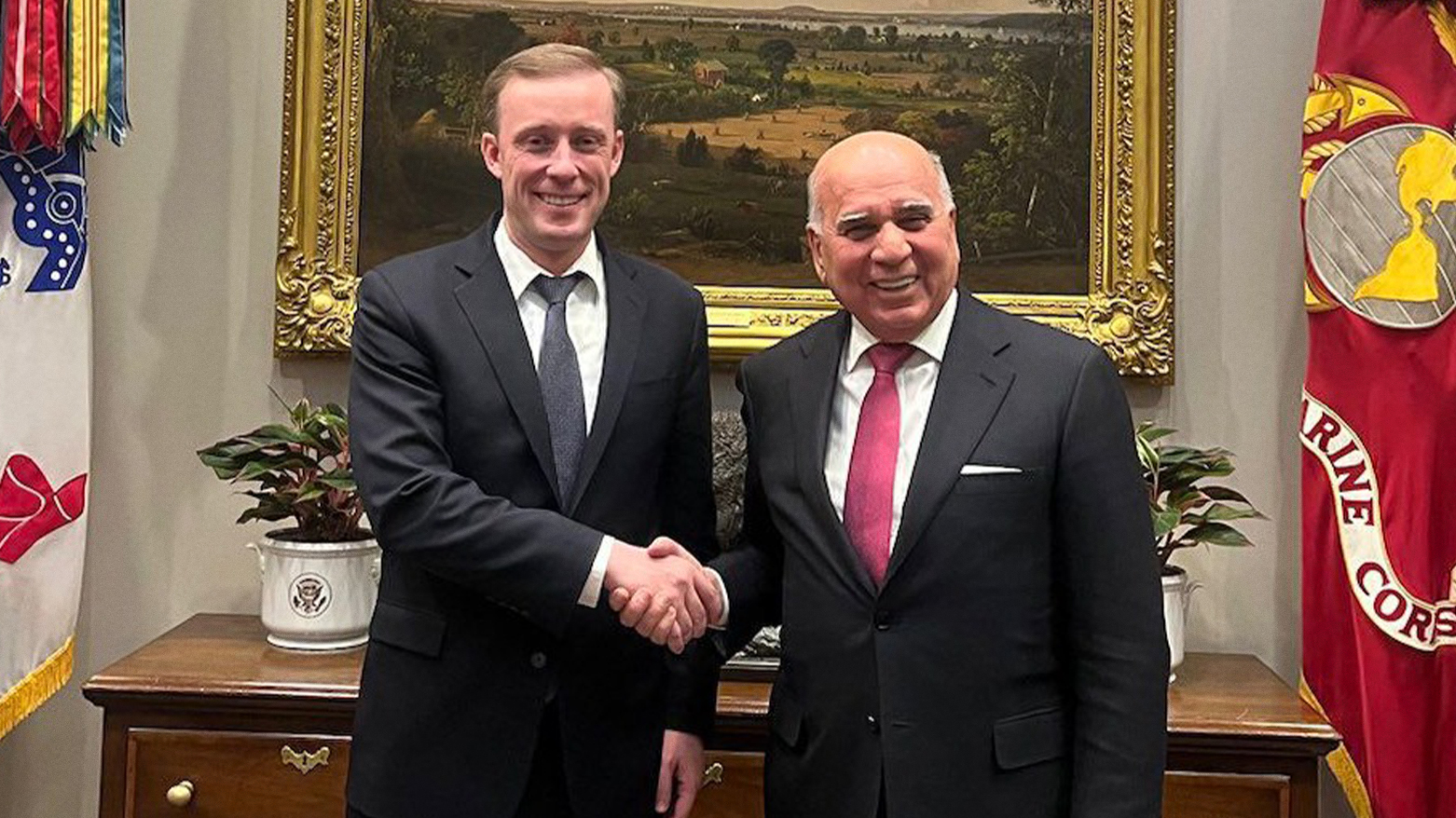Iraqi Deputy Prime Minister and Foreign Minister meets U.S. officials ahead of Prime Minister’s Visit to Washington

WASHINGTON DC, United States (Kurdistan 24) – Iraq’s Deputy Prime Minister and Foreign Minister, Fuad Hussein, arrived in Washington on Friday, coming from Canada, where he met with the Minister of National Defense, the Foreign Minister, and key members of parliament.
Hussein was appointed Iraq’s Foreign Minister in 2020, under the previous government of Mustafa al-Kadhimi. Hussein is Kurdish and his involvement in politics began with the Kurdistan Democratic Party, rising to the position of Chief of Staff to the President of the Kurdistan Region, Masoud Barzani.
This is Hussein’s second visit to Washington as Foreign Minister under the current government of Mohammed Shia’ al-Sudani. Hussein was last in Washington in Feb. 2023, when U.S. Secretary of State Antony Blinken welcomed him as “a long-time friend.”
Read More: US, Iraq hail ties, following Foreign Minister’s visit
This time, Hussein’s meetings in Washington are to prepare for Sudani’s first visit to the U.S. capital. That will be in mid-April, when he will meet with President Joe Biden.
Read More: Iraqi Prime Minister to Make First Visit to Washington
A month ago, Masrour Barzani, Prime Minister of the Kurdistan Regional Government (KRG) of Iraq, visited Washington, for a series of meetings with senior administration officials.
Read More: KRG Prime Minister Meets with U.S. Secretary of State
That visit, as well as Sudani’s upcoming visit, represent a major effort by the Biden administration to address problems in Iraq. But it is being undertaken rather late in its term.
When Biden took office in January 2021, the focus of his administration in the Middle East was on renewing the 2015 nuclear deal with Iran that Donald Trump had left in 2018. Yet as events would show, Iran was not interested, and that diplomatic effort proved a failure.
Nonetheless, the administration believed that its Middle East policy was successful. As National Security Advisor, Jake Sullivan, told The Atlantic Festival on Sept. 29, just a week before Hamas’s bloody assault on Israel, which triggered the Gaza war and broader unrest in the region, “The Middle East is quieter today than it has been in two decades.”
Sullivan attributed that seeming success to the administration’s policy, which was “to depressurize, de-escalate, and ultimately integrate the Middle East region.”
The New York Times subsequently published a biting article titled, “Jake Sullivan’s ‘Quieter’ Middle East Comments Did Not Age Well.”
Fuad Hussein’s Meetings with U.S. Officials
In his first days in Washington, Hussein held four meetings at the White House and one at the Treasury Department.
At the White House, he saw National Security Advisor Jake Sullivan, who, in turn, had met with Sudani on Jan. 16 on the sidelines of the World Economic Forum in Davos, Switzerland.
In Hussein’s meeting with Sullivan, “They discussed the outcomes” of the sessions of the Higher Military Commission, in which Iraq and the U.S. are laying the basis for bilateral defense cooperation, as the mandate of the anti-ISIS Coalition draws to an end, according to an Iraqi read-out of their meeting.
They also discussed “the security challenges facing Iraq and the region,” it said.
Hussein also met with Philip Gordon, National Security Advisor to Vice-President Kamala Harris. Presumably, that meeting built upon the meeting that Harris had with Sudani on the sidelines of the Munich Security Conference last month.
In Munich, Harris and Sudani had discussed “the importance of continuing the U.S.-Iraq Higher Military Commission, which will enable the transition to an enduring bilateral security partnership,” the U.S. read-out stated.
She also “reiterated President Biden’s invitation to Prime Minister Sudani to visit the White House,” it said.
While in Washington, Hussein also saw White House Coordinator for the Middle East and North Africa, Brett McGurk. “They discussed political developments in Iraq and the important role it plays in the region,” as well as “reviewing bilateral relations between the two friendly countries,” the Iraqi read-out stated.
In addition, they “touched on the war in Gaza,” as well as terrorism and security issues represented by ISIS in Iraq and Syria, it added.
U.S. Push to Restart KRG Oil Exports
Hussein also saw Amos Hochstein, Special Presidential Coordinator for Global Security and Energy Security.
In addition to a general discussion of regional security and the energy market, Hochstein raised “the problems some oil companies in the Kurdistan Region of Iraq are facing due to their inability to export,” the Iraqi read-out said.
Hochstein “expressed his country’s readiness to enhance ways of cooperation, especially in the field of energy, oil, and gas, hoping to solve the oil issues between the Federal Government and the Region,” it continued.
Finally, Hussein met with Brian Nelson, Under Secretary of the Treasury for Terrorism and Financial Intelligence. Their meeting focused on preventing Iran from using Iraqi banks to circumvent U.S. sanctions, as well as other reforms undertaken by the Central Bank of Iraq.
